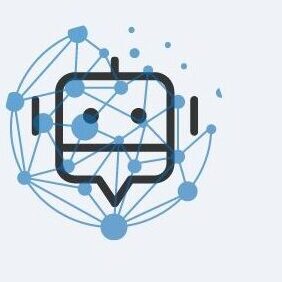Choosing analytics as a minor alongside my software engineering major has been a game-changer. It enhanced my problem-solving skills, allowing me to build smarter, data-driven applications. The combination opened doors to new career opportunities in data science and machine learning, proving to be a perfect match for today’s tech industry.
Combining a is analytics a good minor to go with software engineering enhances your ability to create data-driven solutions, boosting career opportunities in fields like AI, data science, and business intelligence. This combination equips you with both technical and analytical skills, making you more versatile and competitive in the tech industry.
What is Software Engineering?
Before we dive into the combination, it’s essential to understand what software engineering entails. In short, software engineering is the process of designing, developing, testing, and maintaining software applications. It involves principles from computer science and engineering, with an emphasis on creating efficient and reliable software systems.

Software engineers are responsible for building everything from mobile apps to large-scale enterprise solutions. The field requires a strong foundation in programming, algorithms, data structures, and problem-solving. As technology evolves, so do the tools and methods in software development.
What is Analytics?
Analytics is the science of analyzing raw data to make informed decisions. It involves using statistical methods, machine learning, and data visualization to identify patterns, trends, and insights from large datasets. It plays a crucial role in businesses, government, and even healthcare by helping decision-makers understand data and use it to optimize outcomes.
In today’s data-driven world, analytics is indispensable. Companies collect enormous amounts of data, but making sense of it and using it to drive strategy is what separates successful organizations from the rest.
How Do Software Engineering and Analytics Intersect?

Combining software engineering with analytics gives you the tools to not only build applications but also to understand how data drives functionality and user behavior. The connection between the two is crucial for several reasons:
1. Data-driven Development:
Many software applications are built around data. Whether it’s an app that recommends products based on user preferences or a logistics platform optimizing delivery routes, data is at the core. Understanding analytics allows you to harness this data to make smarter development decisions.
2. Predictive Modeling in Software:
- Early Issue Detection: Predictive modeling helps identify potential software issues before they occur, improving system reliability.
- Performance Optimization: Analyzing historical data allows engineers to predict performance bottlenecks and optimize system efficiency.
- User Behavior Forecasting: Predictive models can anticipate user needs and behaviors, enabling more personalized and responsive software.
- Proactive Maintenance: Engineers can predict when software components are likely to fail, allowing for timely updates and maintenance.
- Risk Management: Predictive analytics helps assess and mitigate risks by forecasting potential vulnerabilities or system failures.
3. Optimizing Performance:
With a background in analytics, software engineers can optimize the performance of software systems by identifying inefficiencies through data analysis.
Benefits Of Combining “Is Analytics A Good Minor To Go With Software Engineering”
Choosing analytics as a minor alongside software engineering offers several key benefits:

1. Expanding Career Opportunities:
Adding analytics to your software engineering degree can open new doors in fields such as:
- Data Science: As a software engineer with a background in analytics, you can transition into data science roles. Companies are always on the lookout for candidates who have both strong programming skills and the ability to work with large datasets.
- Business Intelligence (BI): Organizations need software engineers who can not only develop BI tools but also understand the data being analyzed and reported.
- AI and Machine Learning: These fields are powered by data, and understanding analytics is essential for building AI models that are both functional and effective.
2. Versatility in Skill Set:
Analytics teaches you how to extract meaning from data, a skill that enhances your programming abilities. As a software engineer with a strong grasp of analytics, you can:
- Develop more user-centric applications by analyzing user behavior and engagement data.
- Create more efficient algorithms by analyzing system performance and identifying bottlenecks.
- Contribute to multidisciplinary teams, bringing both technical and analytical expertise to the table.
3. Higher Earning Potential:

Combining analytics with software engineering increases your marketability, which can translate into higher salary offers. According to research, software engineers with data analytics skills tend to command higher salaries than those without. As industries continue to prioritize data, this trend will likely continue.
4. Future-Proofing Your Career:
- Adapting to Industry Trends: Analytics and software engineering skills ensure you stay relevant as technology evolves.
- Increased Job Opportunities: Combining these fields makes you more attractive to employers across tech, finance, healthcare, and AI sectors.
- Versatile Skill Set: With expertise in both development and data analysis, you’ll be prepared for roles in emerging areas like machine learning and big data.
- Continuous Learning: Analytics encourages ongoing learning, helping you stay ahead of industry shifts and technological advancements.
- Long-Term Career Growth: The integration of data-driven decision-making with software engineering offers sustainable career paths in rapidly growing industries.
Real-Life Applications of Software Engineering and Analytics
1. Data-Driven Software Solutions:
Many software companies are using data analytics to improve their products. For example, social media platforms like Facebook and Instagram rely on data analytics to recommend content to users, which increases engagement. Engineers who understand both software development and analytics can create more intuitive, data-driven user experiences.
2. Machine Learning and Artificial Intelligence:

As machine learning and AI continue to grow, the need for software engineers who understand analytics is becoming more apparent. These technologies rely heavily on data, and software engineers with analytical skills can help create more effective AI models.
3. Financial Software:
- Data-Driven Algorithms: Machine learning and AI rely heavily on analytics to train models using large datasets, enhancing decision-making capabilities.
- Automation of Processes: Software engineers with analytics skills can build AI systems that automate tasks, increasing efficiency and accuracy.
- Predictive Insights: Combining analytics with AI enables the creation of systems that predict trends, user behaviors, and potential outcomes.
- Enhanced Software Functionality: Analytics helps refine AI models, allowing for smarter and more adaptive software solutions.
- Innovation in Tech: The integration of machine learning, AI, and analytics paves the way for cutting-edge technologies like self-driving cars and personalized assistants.
Is Analytics a Good Minor to Go with Software Engineering? Personal Insights
Now that we’ve covered the practical reasons for combining analytics with software engineering, let’s dive into some personal insights and why I believe this combination is highly effective.
- Enhanced Problem-Solving: By understanding analytics, you approach software engineering from a more informed perspective. You can analyze system performance, identify inefficiencies, and make data-driven improvements.
- Broadens Perspectives: Analytics encourages critical thinking and offers a new way of looking at software problems. It helps you focus on user experience by analyzing how users interact with your software.
- A Complete Skill Set: With software engineering skills, you know how to build things. With analytics, you know how to optimize them. Together, these two skill sets make you a highly sought-after professional.
Potential Challenges and How to Overcome Them
1. Time and Workload Management:

Taking a minor in analytics alongside software engineering means additional coursework. Balancing the demands of both disciplines can be challenging. Time management skills are crucial, and learning how to prioritize tasks will help.
2. Integrating Two Different Skill Sets:
- Enhanced Problem-Solving: Combining software engineering and analytics allows you to tackle problems from both a technical and data-driven perspective.
- Holistic Approach: You gain the ability to build systems and optimize them using insights from data analysis, offering a well-rounded skill set.
- Bridging the Gap: Integrating these fields helps you connect the dots between software functionality and user data, improving application performance.
- Cross-Disciplinary Collaboration: With both skill sets, you can work more effectively with data scientists, engineers, and business teams.
3. Staying Updated:
Both software engineering and analytics are constantly evolving. Staying up to date with the latest trends, tools, and technologies in both fields will require ongoing learning and curiosity.
FAQ’s
1. Can I use analytics for debugging and troubleshooting software?
Yes, analytics can help identify patterns in bugs or system failures, allowing for more efficient debugging and troubleshooting. By analyzing historical data, you can pinpoint issues faster and improve software reliability.
2. Is a career in AI and machine learning possible with just a minor in analytics?
A minor in analytics, paired with software engineering, provides a solid foundation for roles in AI and machine learning. While further specialization may be required, this combination sets the stage for entry into these cutting-edge fields.
3. How does analytics improve user experience in software applications?
Analytics helps track user behavior, preferences, and interactions, allowing developers to create more personalized, intuitive, and efficient applications based on real-time data insights.
4. Can analytics skills help with software scalability?
Yes, analytics allows for better predictions on resource usage and performance under different conditions, helping software engineers design more scalable and robust systems.
5. Is pursuing analytics alongside software engineering time-consuming?
While it requires additional learning, analytics is a highly complementary field to software engineering. Many concepts overlap, making it manageable and rewarding for those who want to expand their skill set without diverging too much from their main focus.
Conclusion:
The answer to the question “is analytics a good minor to go with software engineering” is a resounding yes. The combination of these two fields provides a well-rounded skill set that is highly valued in today’s job market.
Whether you want to develop data-driven applications, work in AI, or transition into data science, a minor in analytics will complement your software engineering degree beautifully.

